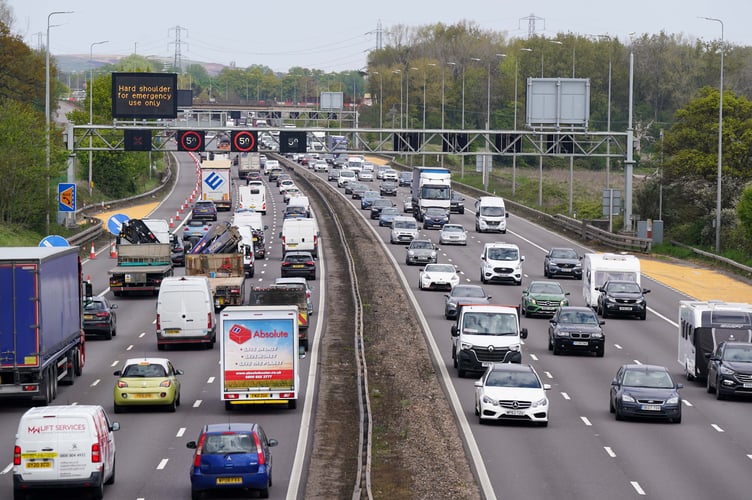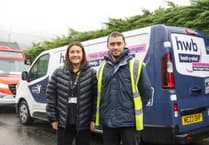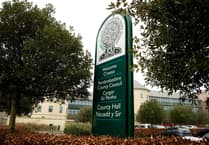Traffic levels in Carmarthenshire have increased over the last year, new figures show.
The RAC said most drivers still have "no feasible alternative to the car", warning cars will remain "essential" despite improvements to public transport.
New figures from the Department for Transport show drivers in Carmarthenshire covered 1.29 billion miles on council-maintained roads in 2024.
This was more than the 1.27 billion recorded a year earlier.
However, it was less thanthe 1.31 billion in 2019, the last year before the Covid lockdown caused a dramatic fall in traffic across the country.
There were 293 billion miles covered on local authority-maintained roads across Great Britain in 2024 – down from the 299 billion a year earlier, and down on the 313 billion recorded in 2019.
RAC senior policy officer Rod Dennis said: "RAC data shows that 81% of drivers would struggle to adjust to life without their vehicle because for many, it’s the most time and cost-effective option.
"This is especially true for those in rural areas where public transport provision is limited or non-existent.
"The more cars there are on the roads, the greater the impact on air quality, road conditions and traffic.
"While the current Government is very focused on improving public transport across the board, we expect the car will remain essential to many people’s lives for years to come."
The five areas with the least traffic included four remote islands, and the City of London.
The Government has said it will announce a new road safety strategy later this year, "to reduce antisocial behaviour, injuries and tragic deaths on our roads".
Last year former Transport Secretary Louise Haigh told the Commons the Government would tackle the "blight" of antisocial behaviour and speeding.
"We are working on delivering the road safety strategy, the first in over a decade, to reduce antisocial behaviour, injuries and tragic deaths on our roads," she said.
Tanya Braun, director of external affairs and fundraising at Living Streets, which campaigns to make streets safer for pedestrians, said the Covid pandemic changed how people travel around neighbourhoods.
"During the Covid-19 lockdowns, we all appreciated the benefits of going for a walk," she said.
"Five years on and many of us have made it a habit, but we need to be careful that driving levels don’t creep back up."
She added: "We want to see tangible measures in the strategy that will make walking and wheeling safer for all, such as slower speeds and a ban on pavement parking."
She said the charity's own data shows interventions to improve streets for walking were already making a difference, with existing pavement parking bans encouraging more parents to walk to school.
A Department for Transport spokesperson said: "The safety of all road users is a top priority for the Government, which is why we are committed to delivering a new road safety strategy – the first in over a decade - and will set out next steps in due course.
"We also recognise the problems pavement parking can cause for people across the country. That’s why we have commissioned new research to better understand the impact of pavement parking and ensure the solutions we take forward work in practice.
"The Government will continue to review the issue nationwide and will update as soon as possible."




